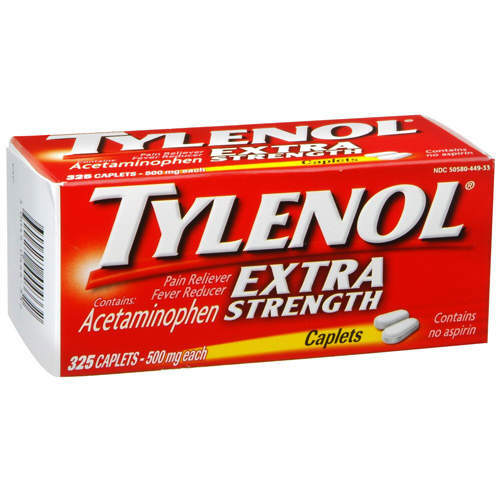As a Texas medical doctor and Dangerous Drugs attorney, I have been warning about the serious and potentially deadly side effects of this commonly used medication. I have had personal experience of the liver damage that this drug can inflict on the young, elderly and sick patients, during my years as working as an ER physician.

Many a night we struggled to save the lives of young kids who would take Tylenol overdoses as a means of committing suicide. In some instances, the children died, some we managed to save with aggressive medical treatments.
According to experts, almost a quarter of patients take more than the recommended dose, which could result in accidental Tylenol overdoses, increasing the risk of liver failure or death.
J&J Red Cap Tylenol Warnings
Consumer groups have been petitioning J&J to strengthen the warning labels for years, without any effect. Only once the product liability lawsuits started to be filed, did J&J respond and now added a new “red cap warning” to the pain medication.
According to news reports Extra Strength Tylenol bottles will be shipped with bold red warnings on the top of the cap starting in October 2013. The new warnings will indicate that the product “Contains Acetaminophen” and state that consumers should “Always Read The Label,” after J&J has faced severe criticism for failing to beef up existing label warnings about the risk of serious liver damage from Tylenol.
Risk of Liver Failure From Extra Strength Tylenol
Doctors and the pharmaceutical companies have known for more than 30 years, that the chemical acetaminophen, in brand name Tylenol, exhibits a serious risk of liver failure.
Because of the direct aggressive consumer marketing by Johnson & Johnson and their McNeill subsidiary, and the fact that this medication can be bought freely in unlimited quantities across the counter, have led consumers to assume that Tylenol is a safe pain medication.
Acetaminophen Tylenol Liver Poisoning and Damage
Acetaminophen is recognized as the leading cause of liver injury and damage in the United States. There are more than 50,000 emergency room visits each year, including 25,000 hospitalizations and 450 deaths.
Unfortunately this chemical is found in more than 600 other medical products, including NyQuil, Excedrin, Sudafed and common cold medications.
FDA Warnings
J&J reduced the recommended daily dose of Tylenol in 2011, from 4,000 mg per day to 3,000 mg, but the company continues to sell Extra Strength Tylenol, which contains 500 mg in each tablet and poses a serious risk of liver failure if patients take more than two tablets every six hours.
In January, 2013 the FDA warned about the risks of Acetaminophen, which is used in many commonly prescribed medications in combination with pain relievers such as codeine, oxycodone and hydrocodone. As of January 2011, FDA reported that overdoses from prescription medicines containing acetaminophen accounted for nearly half of all cases of acetaminophen-related liver injury in the U.S.
Tylenol Lawsuits Increasing
Johnson & Johnson, the manufacturer of Tylenol, is exposed to an increasing number of lawsuits, brought by patients who allege that the J&J withheld critical information about the Tylenol liver risks for years.
According to lawsuits, the drug maker has known for many years about the serious risk of serious liver problems and has refused to adequately warn patients or the doctors.
The Tylenol litigation in the federal court system was centralized and consolidated as part of an MDL, or Multidistrict Litigation in Pennsylvania, earlier this year.






